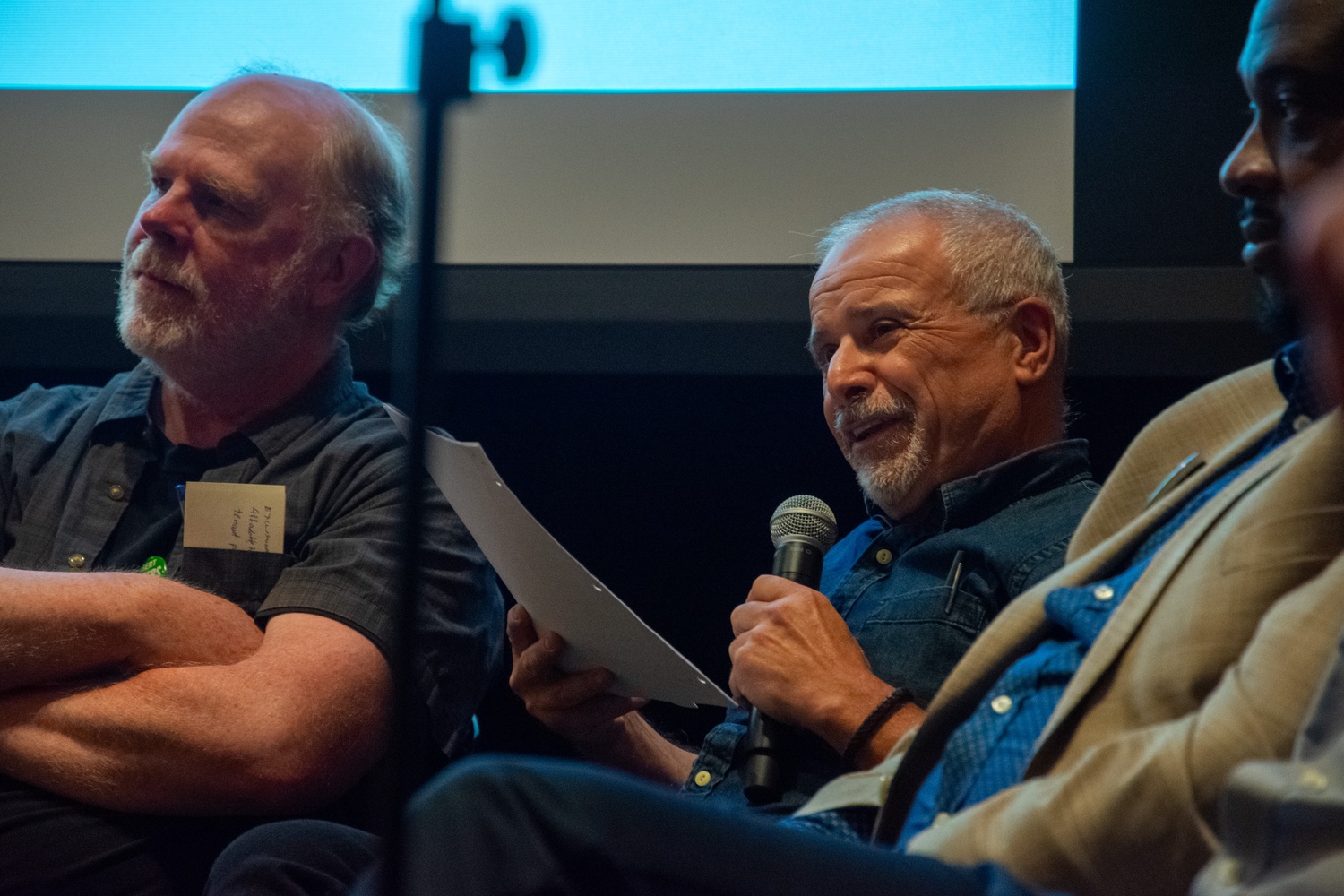
News
In Fight Against Trump, Harvard Goes From Media Lockdown to the Limelight

News
The Changing Meaning and Lasting Power of the Harvard Name

News
Can Harvard Bring Students’ Focus Back to the Classroom?

News
Harvard Activists Have a New Reason To Protest. Does Palestine Fit In?

News
Strings Attached: How Harvard’s Wealthiest Alumni Are Reshaping University Giving
Filmmaker Federico Muchnik Runs for Cambridge Council to Safeguard the ‘Character of the City’

Federico Muchnik is running for Cambridge City Council because of a seven-story apartment building that was proposed in his neighborhood.
Muchnik, who advocates for affordable housing with reservations to avoid “sacrificing the character of the city,” said his campaign was sparked by a proposal for a roughly 100-unit apartment complex that was proposed at 21 Walden Square Road, about two blocks away from his own residence.
“I got into this fight, into this challenging battle, if you will, into this campaign as a result of learning about what’s happening in 21 Walden Square Road,” Muchnik said in an interview with The Crimson.
The development, he said, would convert a nearby road into a tunnel and resulted in a “slab-style” and “industrial-sized” building that would alienate residents and eliminate neighborhood green space.
“You’re effectively doubling the density and you are essentially creating a rather concerning situation,” Muchnik said. “Doesn’t anybody in the city have kind of a say over how this is going to unfold?”
Muchnik, a graduate of NYU’s Tisch School of the Arts, is a longtime Cambridge resident and documentary filmmaker whose work focuses on affordable housing developments. His background includes working as a producer at WGBH and teaching filmmaking at Boston University, Emerson College, and, most recently, Lesley University. Before launching his campaign in June of this year, he released a series of short films on housing in Cambridge.
In a Change.org petition he launched in June over the 21 Walden Square Road development, Muchnik voiced his support for “affordable housing built on a human scale, with low rise row houses and smartly planned landscaping.”
Later that month, apartment developers WinnDevelopment adopted a revised plan to construct two smaller apartment buildings on the property following input from residents.
“You ask the folks who live there what their take on it is and learn that after about six or seven stories, people disengage from the street, they disengage from the community,” Muchnik said.
In a similar vein, he specifies in his platform that he opposes currently proposed amendments to the 100% Affordable Housing Overlay that would provide for taller building height maximums throughout the city.
“My opposition to AHO 2 does not mean I oppose affordable housing,” Muchnik wrote on his website. “12 and 15 story building might be allowed under exceptional circumstances, but I oppose the normalization of tall buildings.”
“You can’t solve the housing crisis by building your way up and out of it,” he said in the interview. “Good urban planning and good design do not have to be mutually exclusive.”
He prioritizes what he calls “the three Ds” of development: design, diversity, and density.
“I happen to like the fact that in Cambridge, you have people from all walks of life and all professions, you’ve got social workers next to social scientists, you’ve got engineers next to short-order cooks,” Muchnik said.
The other focal points of his campaign include transportation and a strong emphasis on arts and culture.
“I’ve seen in the last year alone that Cambridge has become a very difficult city to drive in,” Muchnik said. “I think that we have to accept that there are four elements — pedestrians, cyclists, cars, and buses — sort of competing for the road.”
Muchnik’s transportation plan advocates for removing city bus lanes in favor of “agile, easy to maneuver around electric, half-sized shuttle buses” while doubling the size of the fleet of buses.
Recalling his childhood in the city, Muchnik called for multicultural music spaces, recalling that “growing up in Cambridge, every Saturday, there were concerts.”
“I’m big on arts and culture, and I think that that can be used in our public spaces to create more unity among our various groups,” he said.
At a recent candidate forum hosted by affordable housing group A Better Cambridge, Muchnik delved into the topic of tenant rights.
“What we need is a simpler and more powerful tenant bill of rights, something that a tenant knows that they can go to,” he said.
Citing his experience as a landlord in Cambridge, Muchnik said difficulties arise when tenants are constantly leaving, so he would advocate to “peg rental increases to property taxes.”
Cambridge uses a proportional representation voting system, where voters rank each candidate in an at-large election held every two years. This year, 24 candidates, including Muchnik, are vying for nine seats on the Council in the city’s Nov. 7 election.
“I want the public to understand that the very fabric of their neighborhood is at stake here and that they should vote like their neighborhood depended upon it, because it does,” Muchnik said.
—Staff writer Muskaan Arshad can be reached at muskaan.arshad@thecrimson.com.
Want to keep up with breaking news? Subscribe to our email newsletter.
Most Read
- Trump Presses Harvard To Pay More Than Columbia in Federal Settlement
- Harvard Will Turn Over I-9 Forms for Most University Employees in Response to DHS Inquiry
- Harvard Announces 2 New Partnerships With Israeli Universities
- Harvard Names Serial Entrepreneur Jill Kravetz as Executive Director of Innovation Labs
- Judge Dismisses Harvard From Title IX Suit Over Trans Swimmer’s Tournament Participation
